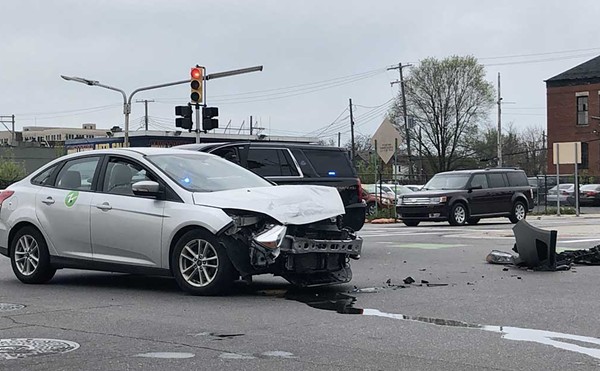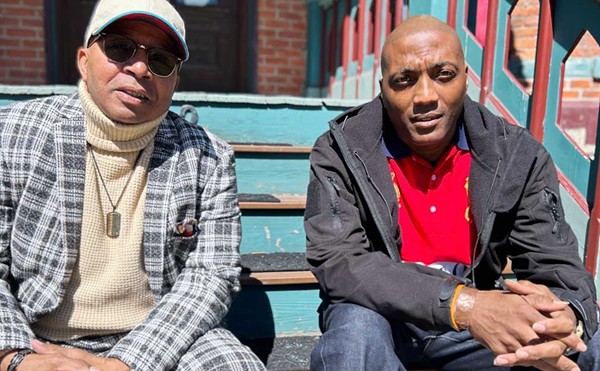It was sort of like watching a Little League game, where confused fielders watch a pop-up drop to the ground as they stand there thinking a teammate will make the catch. Oops.
We're talking about last Friday's Detroit City Council action regarding old Tiger Stadium. On its last day of work before taking a summer break, reworking the wording of documents on the fly in a rush to wrap this up before vacation, the council voted 5-4 to proceed with a Detroit Economic Growth Corp. (DEGC) proposal to tear down most of the stadium and build a mix of retail and residential at the famed corner of Michigan and Trumbull. As critics have noted, there is no developer in place and no money in hand to accomplish this plan, but that didn't matter.
Told that they also had to transfer ownership of the stadium to the DEGC for the demolition plan to be carried out, a majority of the counsil balked and refused to hand over the site. What does that do to the deal? Councilmember Kwame Kenyatta astutely asked.
Council President Ken Cockrel Jr. — who voted for both the demolition plan and the land transfer in what he said was one of the most difficult decisions of his career — told reporters afterward that he thought both measures needed approval before demolition could proceed, and that the council's split decisions could lead to costly litigation. But the DEGC reps and Mayor Kwame Kilpatrick's people were adamant that plan approval was all they needed to proceed with tearing down the landmark stadium.
Even a last-minute entreaty by former Tiger announcer Ernie Harwell to hold off on a vote until after the break didn't save the day. Harwell, appearing before council with his attorney, said a plan to keep much of the stadium and creating a sports museum or possibly a music museum on the site could hold promise, but that some more time would be needed for him to gauge the feasibility of that and to work with others on compromise solutions.
Council greeted Harwell with applause and much praise, but ignored his plea.
The ballpark has been sitting empty since the end of the 1999 season. In recent weeks, supporters of renovation have been trying to get council to realize that there are legitimate players out there interested in keeping much of the structure, but that the city has never made a legitimate attempt to work with developers. Instead, there has been avoidance and obstruction for the past eight years as at least $2 million has been paid to the Tigers organization to guard and maintain the old stadium. Critics have said for years that city officials were only waiting for that pot, used to line the pockets of Tigers owner Mike Ilitch, to run dry before pushing for demolition.
What's frustrating is that a plan devised by Corktown residents in the late '90s — a plan that involved saving most of the stadium and bringing in residential and retail development — held the promise of taking a unique historic structure and turning it into a major attraction for the city. From our vantage point, that plan was never given a real chance, and the opportunity to create something remarkable was lost. This was not about saving Tiger Stadium just for the sake of saving it, but rather to maximze economic benefit.
After seeing the ballpark sit dormant for eight years, why make a decision on its fate in a rush to meet a self-imposed deadline under a cloud of confusion?
There's only one way to describe the fiasco that went on last week: It was totally bush league, and this city is the loser.
News Hits is edited by Curt Guyette. Contact him at 313-202-8004 or [email protected]




